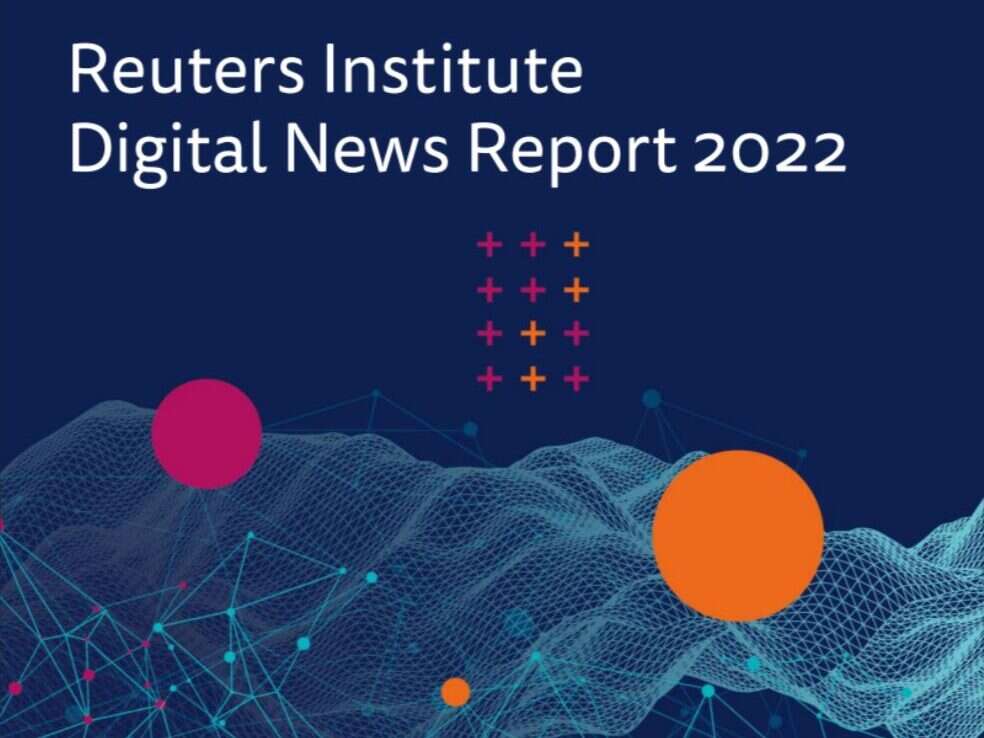
Almost half (46%) of British people actively avoid reading the news as a result of fatigue at excessive Covid and political coverage and a drop in trust in journalism, a new report has found.
The Digital News Report 2022 by the Reuters Institute for the Study of Journalism (RISJ) found that trust in the UK media had undergone a dive recently despite rising slightly during Covid, with just 34% of those polled in 2022 saying they trusted UK news, compared to 51% in 2015.
While the figure put the UK far above the last-placed USA where just 26% of people trusted most news reporting, it still left the country among the ten countries with the lowest trust in their news media.
The UK survey results came from an online questionnaire distributed by Yougov with 2410 responses in February 2022.
Who are the most and least trusted names in news?
The report found that The Sun was the UK’s least trusted news brand out of 15 major UK titles included in the survey, with 67% of people saying they didn’t trust its news output versus 12% who did.
The Rupert Murdoch-owned tabloid was joined by The Daily Mail (on 51% and 23% respectively) and The Daily Mirror (on 49% and 22% respectively) at the bottom of the trust ratings. All three scored lower for trust than fledgling opinion-led TV station GB News.
While the BBC remained the most trusted and biggest news brand in the UK, the public service broadcaster had one of the most dramatic drops in trust in Europe in recent years.
In 2018, 75% of respondents reported trusting the corporation’s coverage, while 11% didn’t. In 2022, that figure had shifted to 55% and 26% respectively.
More than half of those (53%) who didn’t trust the BBC voted Conservative at the last election. Earlier this year, the Conservative government announced plans to reform the BBC, including a proposed end to the licence fee by 2027.
Why is trust in journalism falling?
One of the report’s main conclusions was that that drop in trust came alongside an increasing number of people who are now actively avoiding reading the news on a regular basis.
Some 46% of people polled in the UK said that they avoided reading the news sometimes or often, almost twice the level recorded in 2017.
That put the UK’s ‘news avoidance’ rates far above the average 38% level recorded across the 46 countries analysed, and second only to Brazil where the figure was 54%.
The report actually found that more millennials aged 25-34 regularly avoided reading the news (42%) than 18-24-year-old Gen Z members (40%).
Worldwide the most common factor listed among those actively avoiding news was that journalists had given too much coverage to politics and Covid, a view shared by 43% of those asked.
That was followed by claims that news was having a negative impact on people’s mood (36%), that people were worn out by the amount of news (29%), that the news industry was untrustworthy and biased (29%), that it causes arguments people wanted to avoid (17%) and people they felt powerless to do anything about the information they were learning (16%).
The report also found that 9% of people in the UK reported not reading or engaging with any news each week.
“Despite the huge difference independent professional journalism can make in helping people understand the world beyond personal experience, we find declining interest in the news, lower trust – after a positive bump last year – as well as a growth in active news avoidance amongst some groups,” said RISJ director Rasmus Kleis Nielsen.
“Large numbers of people see the media as subject to undue political influence, and only a small minority believe most news organisations put what’s best for society ahead of their own commercial interest.”
The survey also recorded a significant decrease in the number of British people who felt the UK media was free from undue political or business influence.
Just 20% of those interviewed believed in the political impartiality of the media, down from 34% in 2017, while the same number said the media was free from business influence, down from 29% in 2017.
Image: Reuters Institute for the Study of Journalism
Email pged@pressgazette.co.uk to point out mistakes, provide story tips or send in a letter for publication on our "Letters Page" blog
